Garlic Japanese Milk Bread Rolls are super soft and springy dinner rolls that are baked and topped with garlic butter. If these sound good to you, be sure to try my Garlic Knots and Garlic Breadsticks, too. Try the original version of Japanese Milk Bread Rolls here!
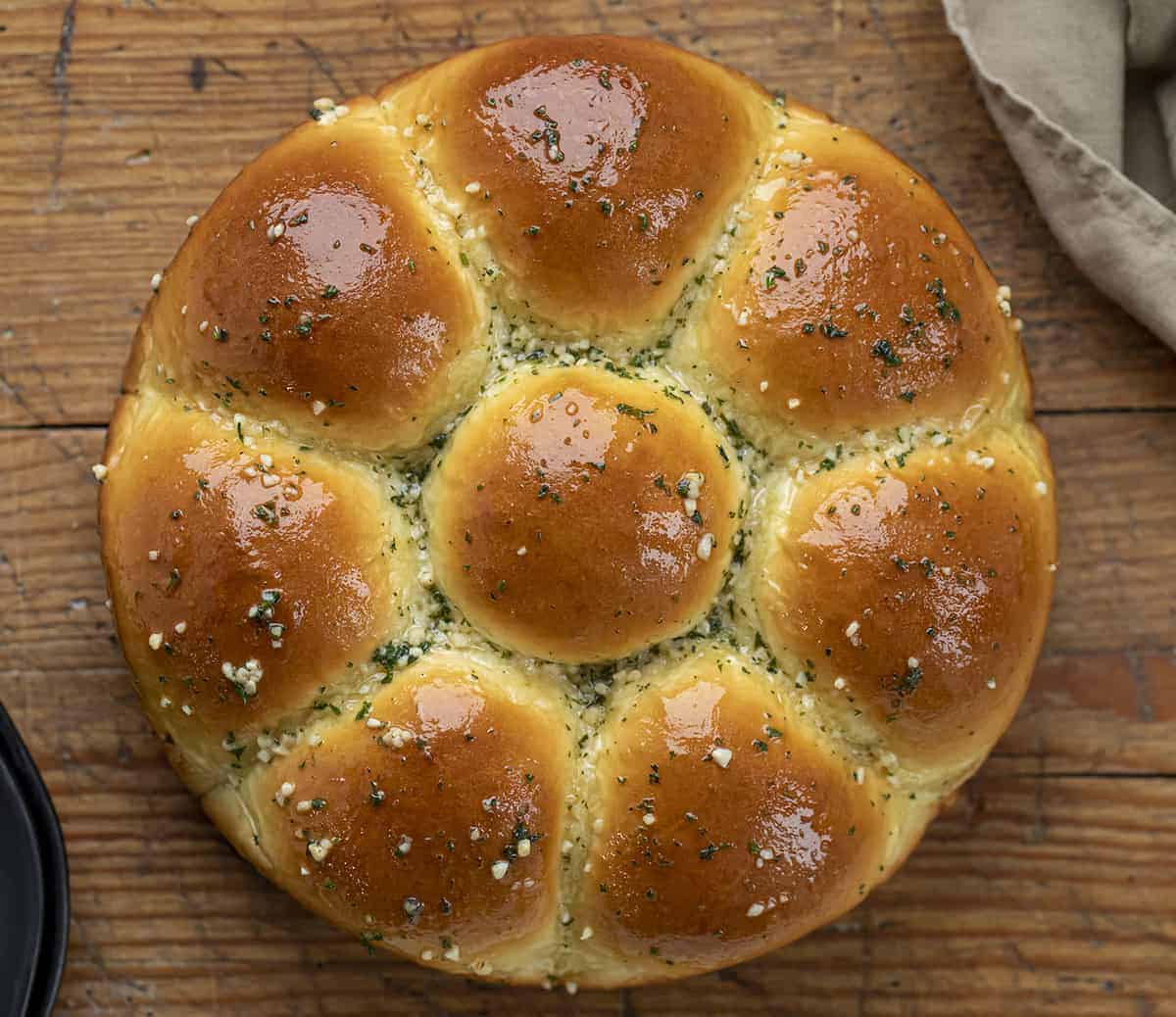
Garlic Japanese Milk Bread Rolls
These rolls take dinner rolls to a whole new level of melt-in-your-mouth goodness. And then, the addition of the garlic butter makes them even better (if that was even possible). It is all because of the Tangzhong mixture that is added to the dough. It’s a flour mixture, like a roux, that makes the rolls so pillow-soft, moist, and even helps the rolls last a little longer. I will get more into that later. But, you will want to try it with more of your bread recipes from now on!
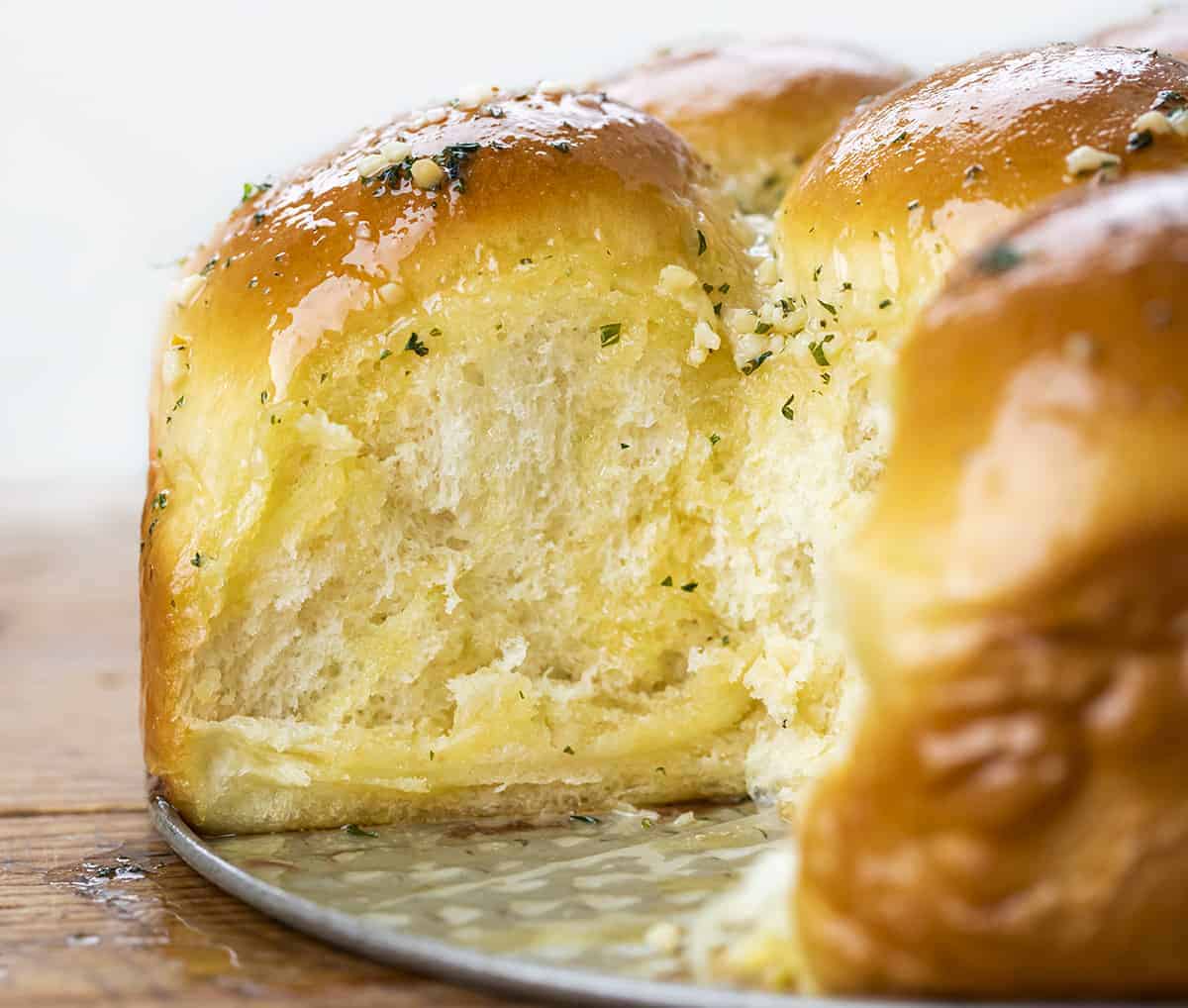
Rolls Ingredients
There are four parts to this recipe–the yeast mixture, tangzhong mixture (the secret to the super-soft rolls), the dough, and the garlic butter.
Yeast: Use active dry yeast with warm water that is about 110°F. If the water is too hot, it will kill the yeast; on the other hand, if the water is too cold, it will not activate the yeast.
Tangzhong Mixture: This is a mixture made with milk, water, and flour (like a roux) that is added to the rest of the ingredients in the recipe.
Dough: Make sure the ingredients, specifically the milk, eggs, and butter, are at room temperature for best results.
Garlic Butter: Garlic, salt, and parsley are added to melted butter and brushed over the warm rolls.
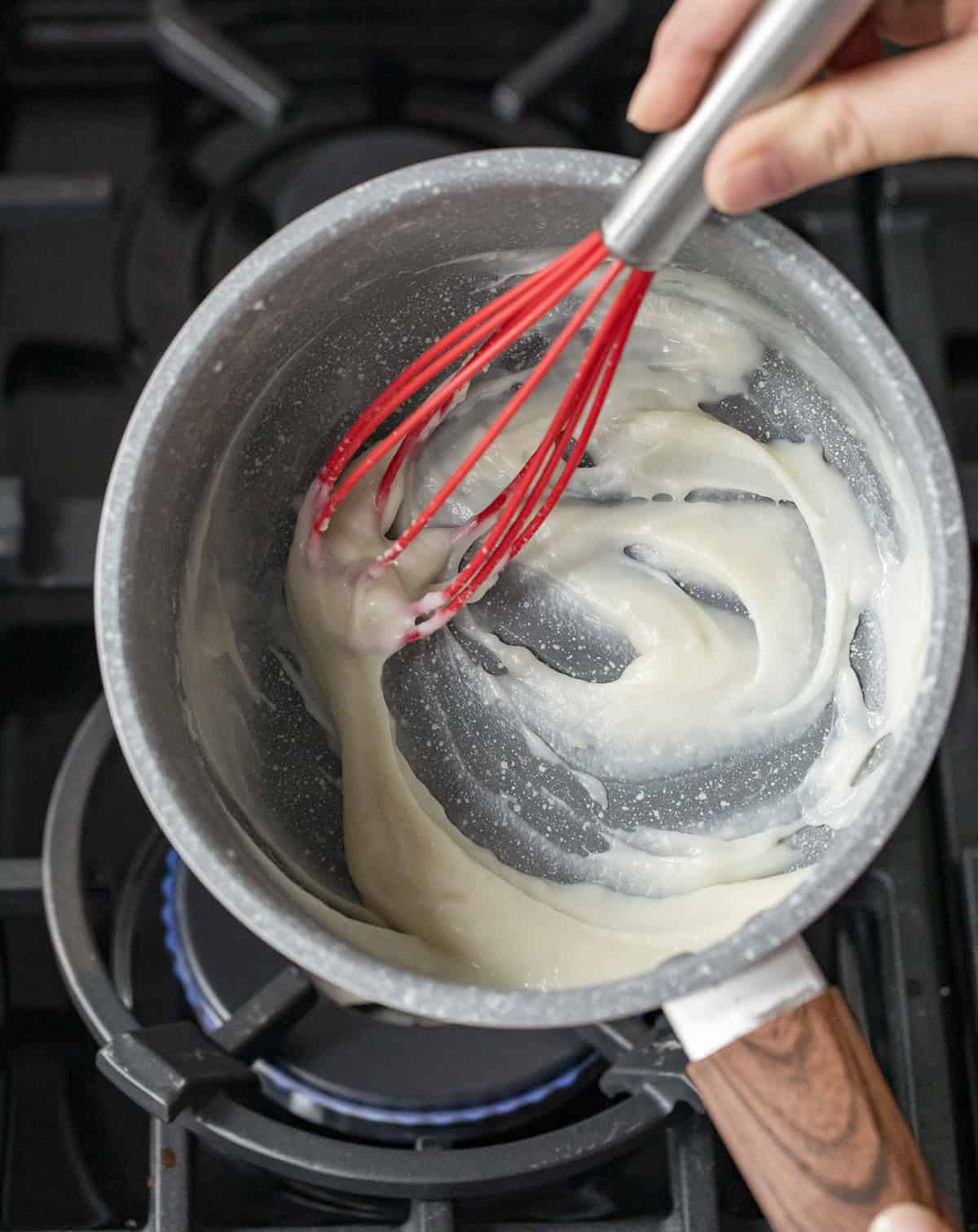
What is Tangzhong?
Tangzhong is a technique to help bread get super soft and last longer (plus stay soft) when added to yeast dough. Milk, water, and a little bit of flour are cooked to create a thick slurry that will be added to the dough.
When the mixture is heated, the starch gelatinizes, which means it can absorb, or trap, more water. And, since the starch is heated with water, it will retain the liquid through the kneading, baking, and cooling processes. This results in rolls that will spring back as you touch them and stay soft longer.
How to Make Tangzhong
The starchy gel mixture is the key to these dinner rolls. To make tangzhong, add milk, water, and flour to a saucepan over medium-low heat. Whisk the ingredients together until it starts to thicken. Once it starts to thicken, remove the pan from the heat and continue to stir it until thick paste forms. Be patient if it seems to be taking a while; all of a sudden, it will be ready to go. Pour the gelatinous mixture into a bowl to let cool a bit before adding it to the dough.
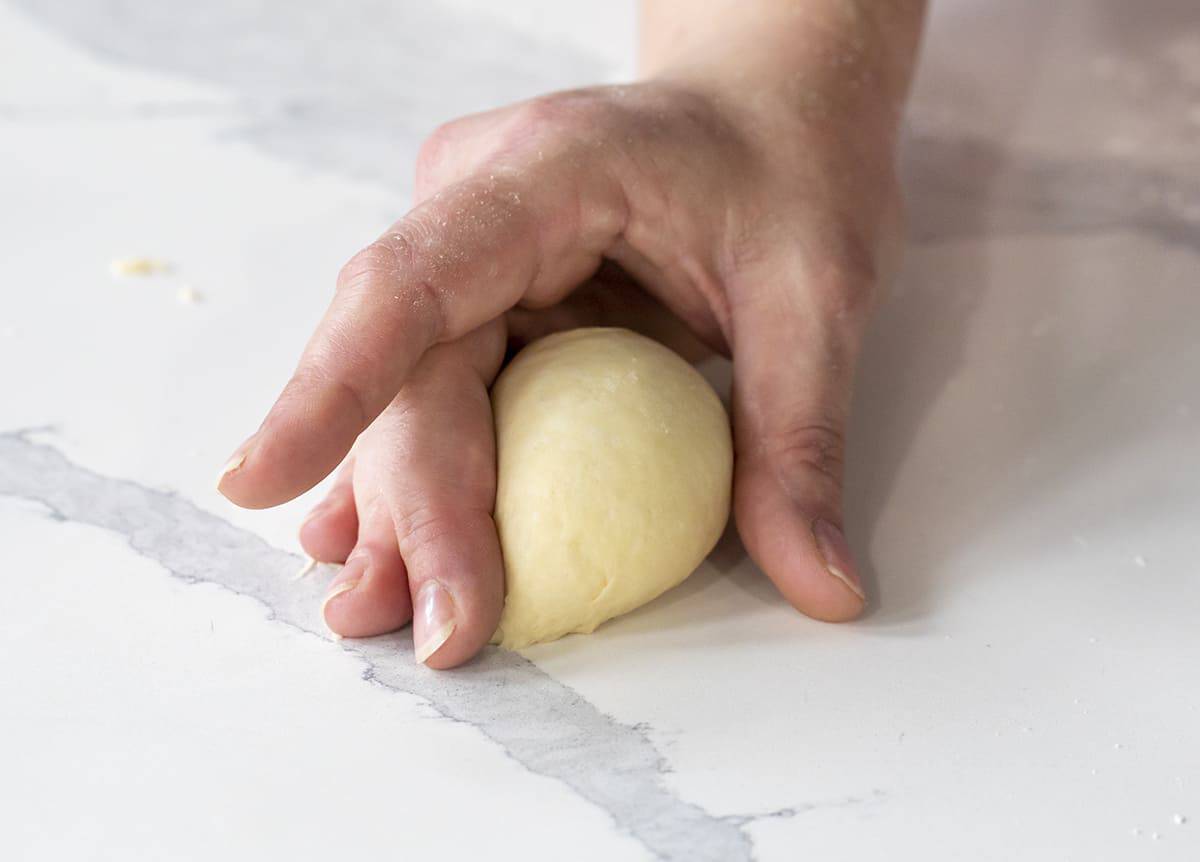
Bread Rolls Dough
Once you have the tangzhong ready and it’s cooling, it’s time to make the dough. First, in the bowl of a stand mixer with a dough hook attachment, add the yeast to warm water. Give it time to get bubbly and foamy, or bloom.
Once the yeast has been activated, add the flour, milk, sugar, salt, one egg, and the cooled tangzhong mixture. Mix on low speed until the dough starts to come together, or about 5 minutes. If the dough is too wet at this point, add a tablespoon of flour; if it is too dry, add a little bit of milk. When I tested the recipe, I did not need to add any flour or milk to the dough.
With the mixer still on low, add a tablespoon of butter at a time, mixing well after each addition of butter. Form the dough into a ball and place it into a greased bowl. Cover the dough loosely with plastic wrap and let it rise for about an hour, or until doubled in size.
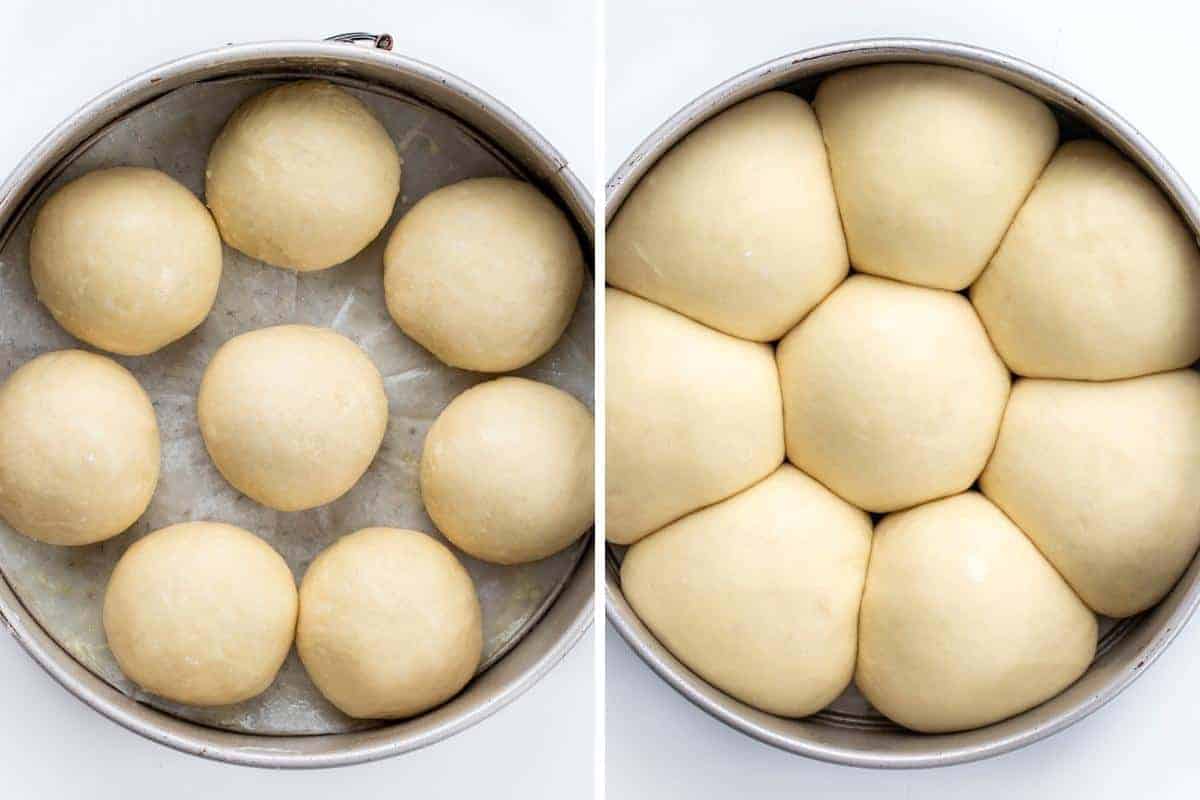
How to Store Japanese Milk Bread Rolls
I doubt you will have any rolls to store after you take one bite, but I will let you know how, anyway. The rolls will stay soft and fresh for up to 4 days at room temperature thanks to the tangzhong mixture. If you want to freeze the rolls, let them cool completely after they have been baked. Do not brush on the garlic butter before freezing them. Store the rolls in a freezer-safe container for up to 3 months. When ready to enjoy, let them thaw in the refrigerator. Pop them in the microwave to warm them up and add the garlic butter before serving.
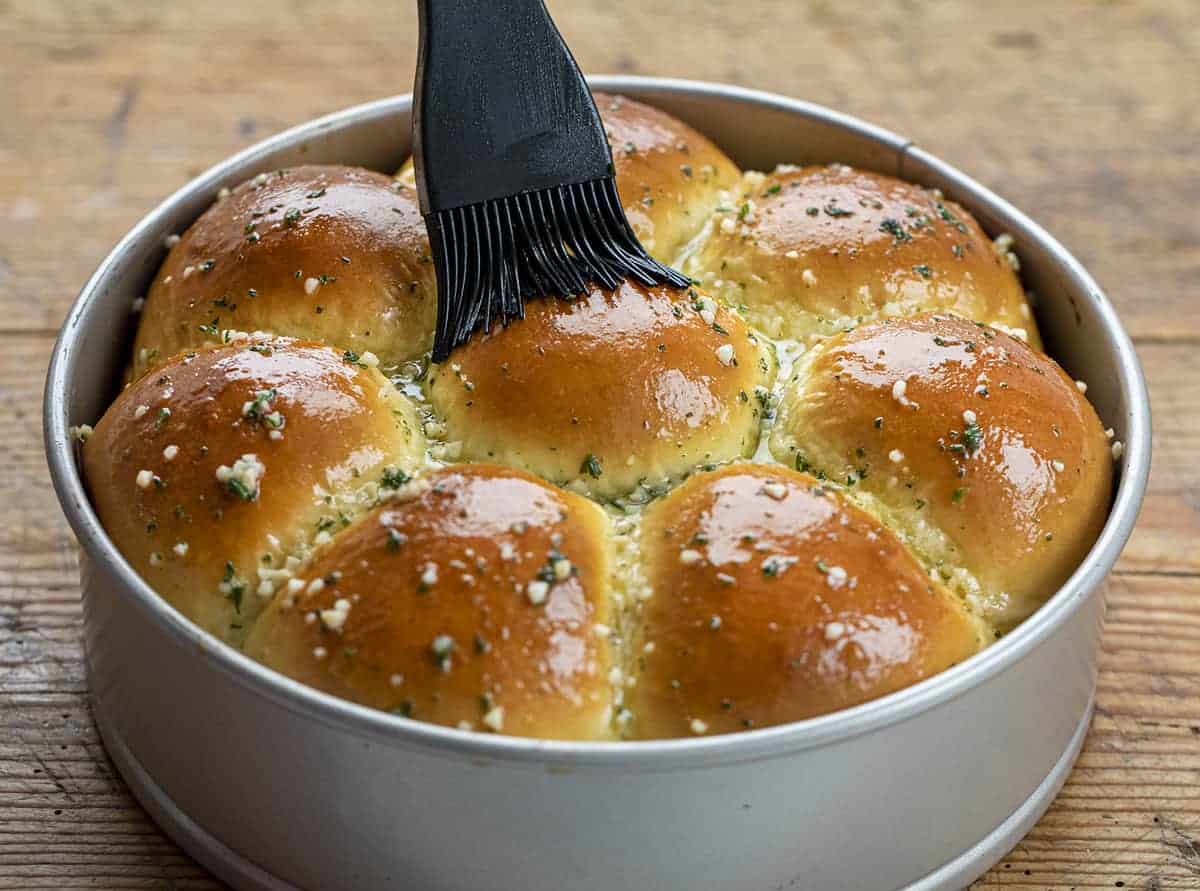
Can I Make the Dough Ahead of Time?
Yes! You can definitely get part of the recipe made ahead of time and freeze the dough until you are ready to bake the rolls. Follow the instructions up to the second rise. Before they rise the second time, add them to a freezer-safe container. When you are ready to bake the rolls, let them come to room temperature and follow the baking instructions.
Can I Make these Rolls without a Springform Pan?
Although I used a 9-inch springform pan for this recipe, you could also use a different pan of a similar size. A loaf pan would work since it has higher sides. If you use a baking dish, make sure it’s a high-profile dish (with higher sides). The tangzhong not only makes the rolls super soft and springy but will also make the rolls rise a little higher than regular rolls.
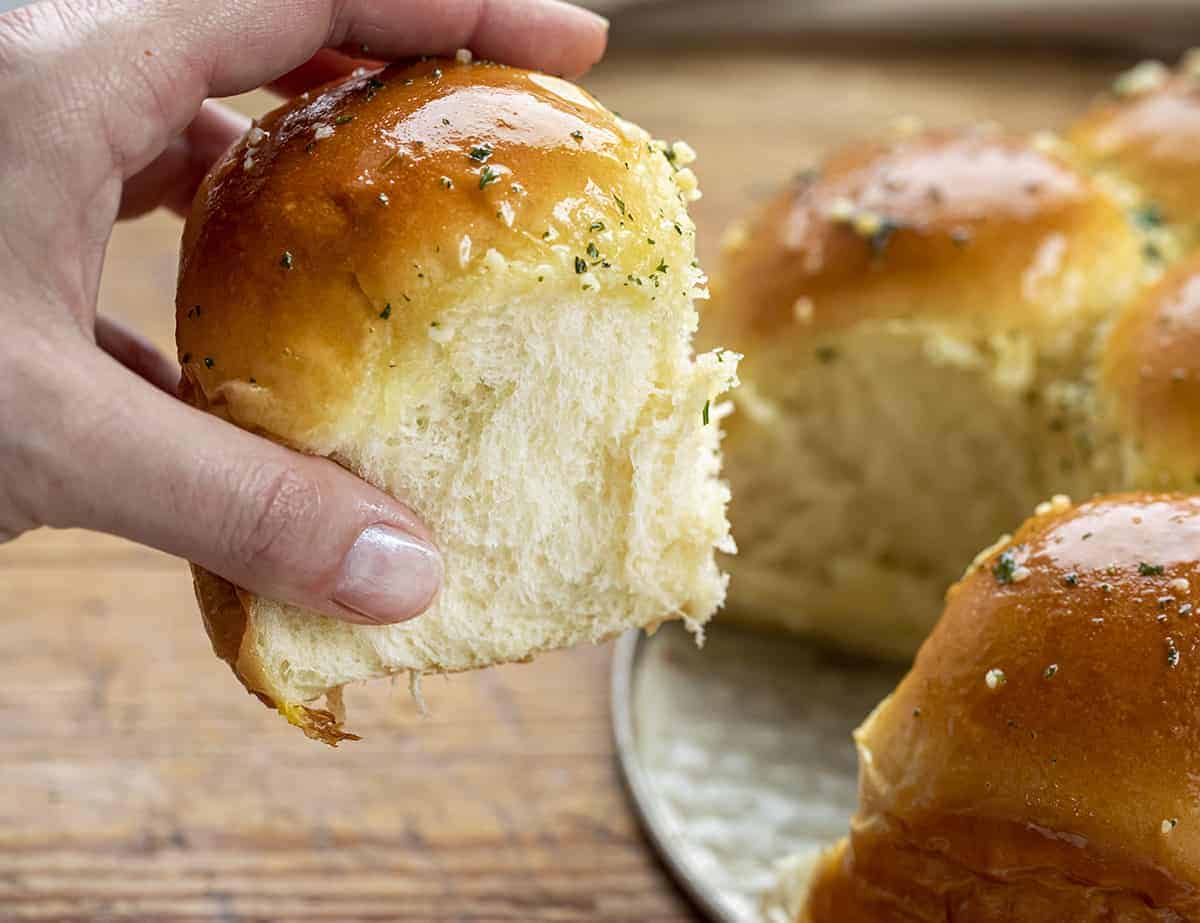
Can I Make these Rolls in a Bread Machine?
Yes! You can use a bread machine to knead the dough with the tangzhong mixture added to the dough.
More Bread Recipes
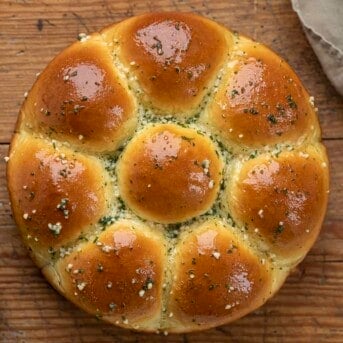
Garlic Japanese Milk Bread Rolls
Ingredients
Yeast Mixture
- 1 tablespoon active dry yeast
- ¼ cup warm water, about 110°F
Tangzhong Mixture
- 4 tablespoons whole milk
- 2 tablespoons water
- 2 tablespoons all-purpose flour
Dough
- 2½ cups (312.5g) all-purpose flour
- ½ cup (122.5g) whole milk
- ¼ cup (50g) granulated sugar
- 1 teaspoon kosher salt
- 2 large eggs, room temperature, divided
- 3 tablespoons unsalted butter, softened
- 1 tablespoon water
Garlic Butter
- ½ cup (1 stick, 113g) unsalted butter, melted
- 1 tablespoon garlic, minced
- ½ teaspoon kosher salt
- 2 teaspoons parsley, minced
Instructions
Yeast Mixture
- In the bowl of a stand mixer with a dough hook attachment, combine yeast and water. Set aside to bloom while you prepare the remaining ingredients.
Tangzhong Mixture
- In a medium saucepan over medium-low heat, add milk, water, and flour. Whisk together well, stirring constantly (but not vigorously). Once it starts to thicken, remove from heat and continue to stir until a thick paste forms. The mixture can take a while to thicken, but when it does, it happens quickly (about 2 minutes). Pour the mixture into a small bowl and set it aside to cool slightly.
Dough
- To the yeast mixture, add flour, milk, sugar, salt, 1 egg, and the tangzhong mixture. Mix on low speed until the dough starts to come together (about 5 minutes). If the dough is too wet, add flour (1 tablespoon at a time). If it is too dry, add a little extra milk.
- With the mixer still on low, add a tablespoon of butter. Mix until fully incorporated. Repeat with the remaining butter (1 tablespoon at a time).
- Form the dough into a ball and place in a greased bowl. Cover with plastic wrap and allow to rise in a warm location for 1 hour (or until doubled). The dough will still be slightly sticky.
- Spray a 9-inch springform pan with nonstick cooking spray.
- When you are ready, punch the dough, turn it out onto a floured surface, and divide the dough into 8 equal-sized pieces (about 3 ounces each).
- Working one at a time, push down slightly (but firmly and evenly) on the dough sections and roll the ball under your palm in a circular motion. Use the cupped sides of your hands to keep the dough centered in your palm. You may have to work the dough for a while, but eventually, it will come together and most of the lines and folds should have incorporated into the dough, forming a smooth dough ball.
- Add the rolls to the prepared pan, spaced apart.
- Cover and allow to rise again until doubled (about 30-45 minutes).
- Preheat oven to 350°F
- In a small bowl, add remaining egg and water and whisk vigorously until combined and smooth.
- Use a pastry brush to brush the tops of the rolls with the egg wash.
- Bake 20-25 minutes, or until the tops are golden brown. (The internal temperature of the baked rolls will be 190°F.)
- In the last few minutes of baking the rolls, prepare the garlic butter.
Garlic Butter
- In a medium bowl combine butter, garlic, salt, and parsley. Stir until well combined.
- Remove rolls from pan and allow to cool slightly.
- Brush garlic butter over warm rolls. Enjoy!
Did you make this recipe?
You can tag me at @iamhomesteader.
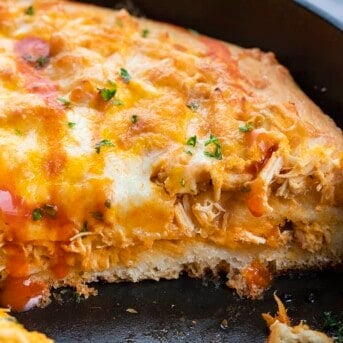
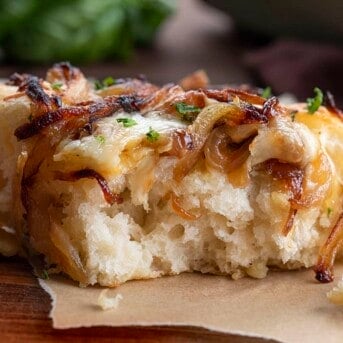

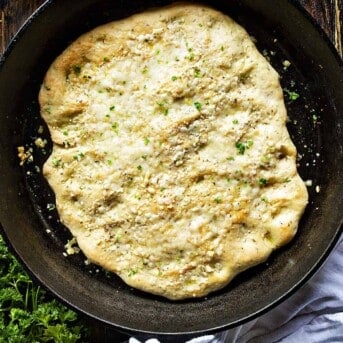
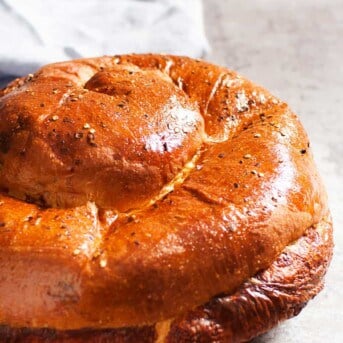
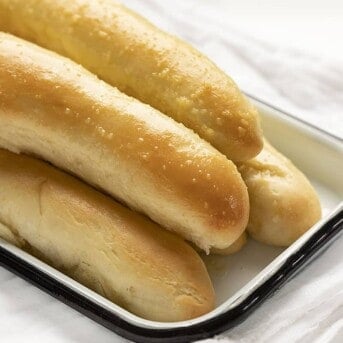

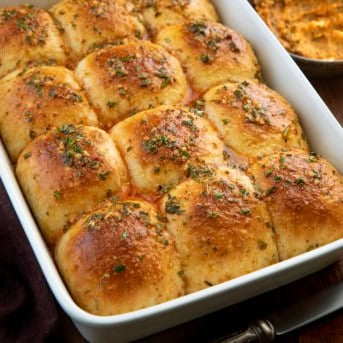

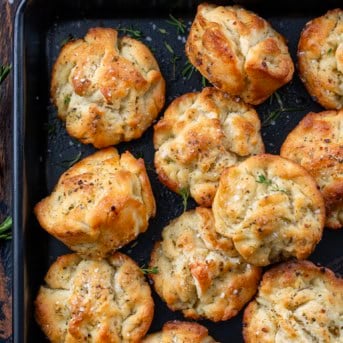
Great recipe. Turned out amazing. I only made about half the amount of garlic butter and it was plenty.
Could these be frozen after baking?
Here is what it says in the blog post:
How to Store Japanese Milk Bread Rolls
I doubt you will have any rolls to store after you take one bite, but I will let you know how, anyway. The rolls will stay soft and fresh for up to 4 days at room temperature thanks to the tangzhong mixture. If you want to freeze the rolls, let them cool completely after they have been baked. Do not brush on the garlic butter before freezing them. Store the rolls in a freezer-safe container for up to 3 months. When ready to enjoy, let them thaw in the refrigerator. Pop them in the microwave to warm them up and add the garlic butter before serving.
My dough was quite sticky. I don’t know what I did wrong
My family and I loved it! I did this with no mixer, or any electronics and it turned out great. Thank you for sharing this recipe.
Can this recipe be double or tripled without any issues?
I haven’t doubled or tripled it. You would need to keep in mind tools and baking – theoretically it would work but in what pan and and what baking time would be the logistical questions.
Can I prepare this recipe in a bread machine?
Could this recipe be adapted to make Cinnamon Rolls?
Sure – you can use this recipe https://iambaker.net/japanese-milk-bread-rolls/
Love it and very easy for a beginner to do. I done this by hand and by mixer. I get the same results. Don’t freak out if the don’t rise that much on the second rise, baking them will finish the rise.
This was the easiest milk bread recipe I’ve seen in MONTHS! Thank you so much! These rolls are DANGEROUS 😂😂 eat however many you want they good!
Turned out great! Thanks for the detailed instructions
These were delicious but very much like yeast rolls to me! Thanks for the recipe!
Could bread flour be substituted for all purpose?
Generally speaking, yes. However, it’s important to remember that bread flour’s increased protein could result in a dough or batter that’s dry, so you may need to add water or milk.